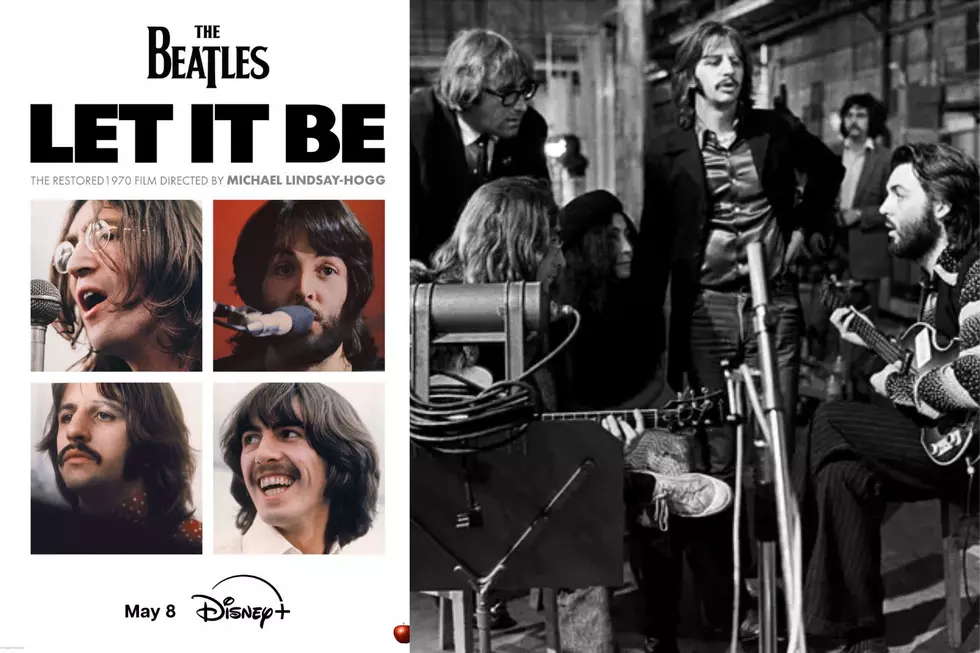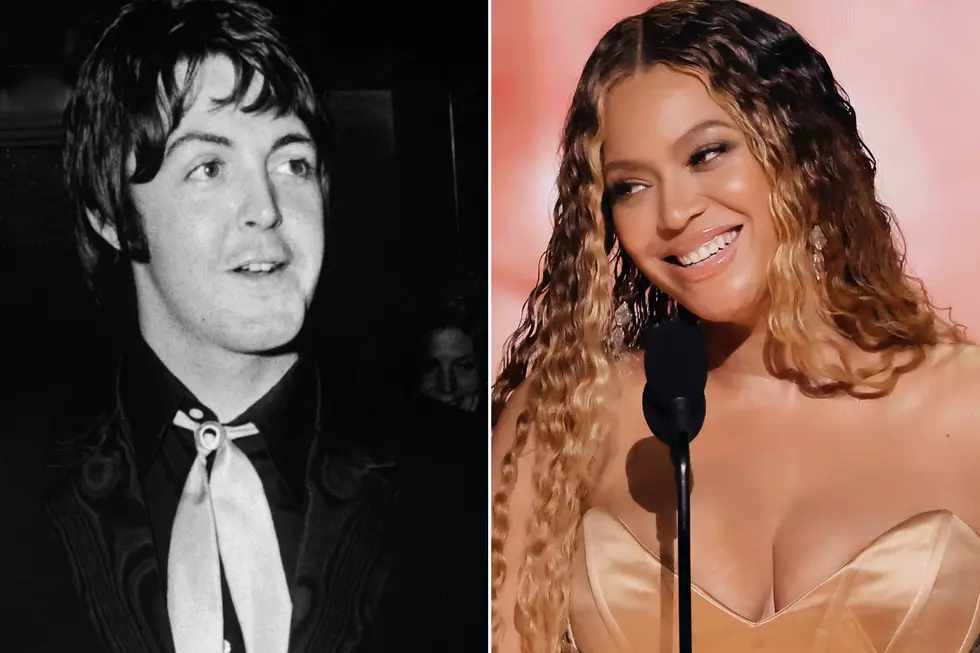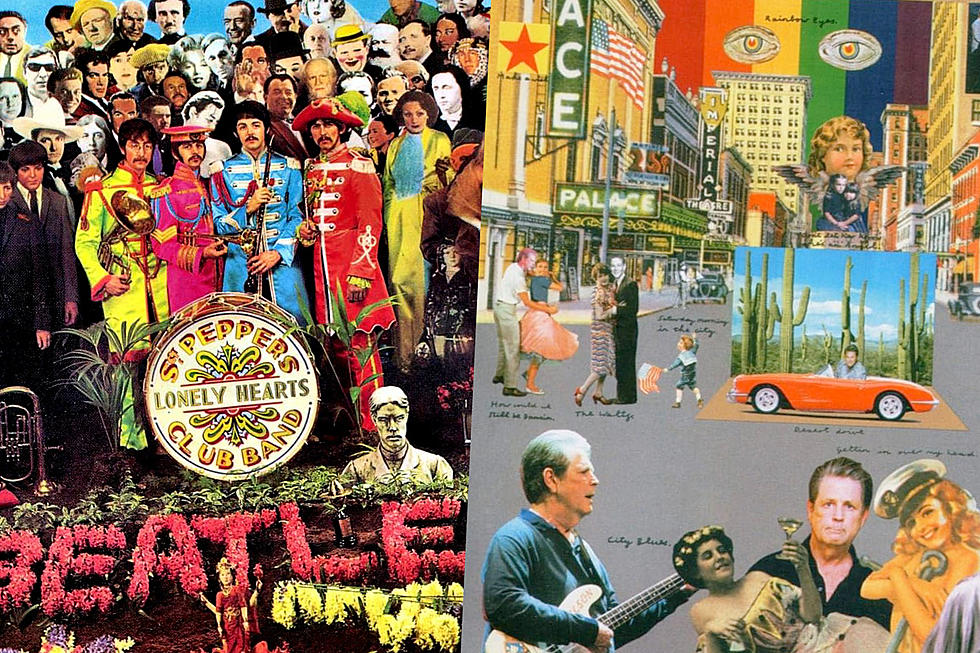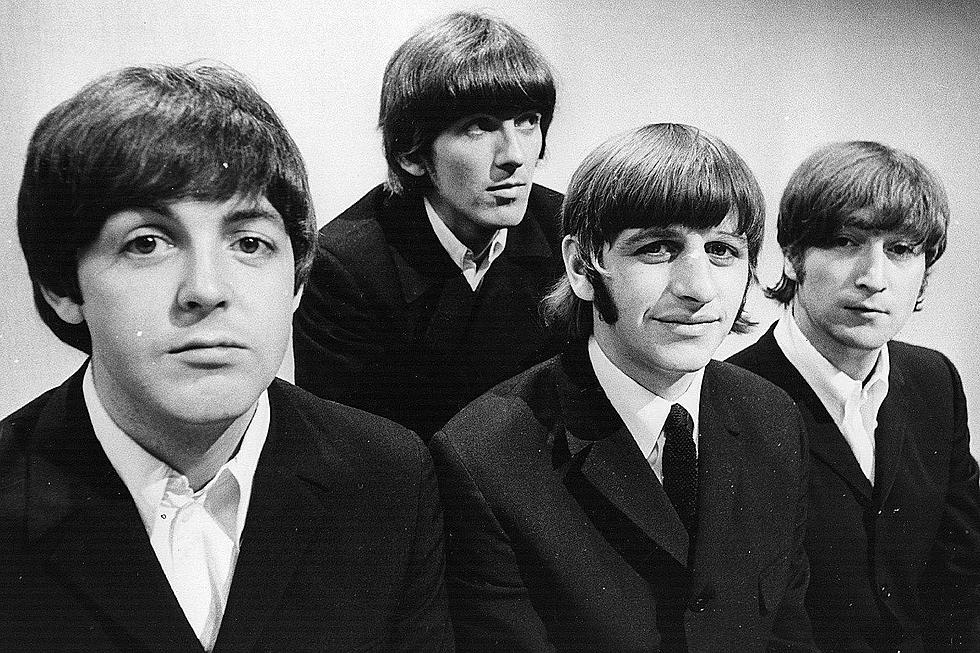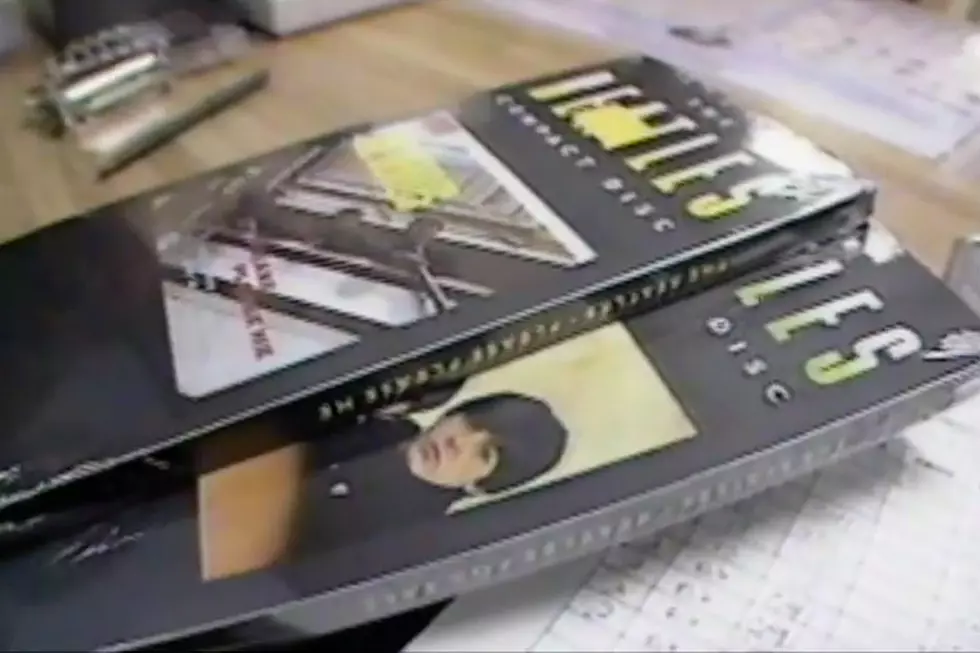
The Day the Beatles’ First CDs Arrived in Stores
A year-long campaign to issue the Beatles on compact disc began on Feb. 26, 1987 with the release of their first four U.K. albums: 1963's Please Please Me and With the Beatles, and 1964's A Hard Day's Night and Beatles for Sale.
All four were released in mono, in keeping with the direction of the original pressings and studio approach. "I was asked by EMI to give my opinion, and my advice was not to put them out the way they were doing," Beatles producer George Martin told Billboard in 1987. "They were going to issue fake stereos—the bane of my life for the past two decades—and I said, 'Well, these were recorded in mono, so why do this?'"
In a quirk unique to the times, that these pressings weren't in stereo was controversial. Some retailers worried about consumer confusion or unhappiness. "I only wish that they would have offered some sort of indication on the packaging that these are in mono," Lew Garrett, vice president of purchasing for the Camelot Music chain, told Billboard. "There will be instances where—if they didn't read about them in USA Today or Rolling Stone—customers will bring them back and say, 'Hey, they're mono. Is there something wrong here?'"
Billboard, meanwhile, also ran a full-page editorial that (among other things) pointed out that Beatles records were originally released in stereo and mono versions back in the '60s. To twist the knife a little more for purists, Martin revealed in a separate 1987 New York Times interview that A Hard Day's Night and Beatles for Sale could've been issued in stereo, but time was a factor: The producer wasn't actually asked about the sound and approach of the CDs until December 1986, "by which time [the label was] ready to have the disks pressed," he said.
"I told them that the first two should go out in mono, and that if they had to issue the others in stereo, the mixes should be cleaned up and re-equalized for CD. Unfortunately, there was a deadline to be met, so they said, 'Look, we'll release all four in mono, and if you like, perhaps you can prepare stereo mixes for A Hard Day's Night and Beatles for Sale later on.'" (Martin at least liked how the CDs sounded, as he told Billboard: "They went back and just transferred the original mono masters directly to CD. When they sent me the copies, I was delighted.")
Watch a News Report About Beatles CDs
By putting out the British records on the then-nascent format, EMI streamlined the Beatles' 1962-66 output in accordance with how the group had originally intended their music to be heard, and not in the scattershot approach used on the albums released in the U.S.
While this eliminated the instrumental score found on the American version of A Hard Day's Night (which was technically the soundtrack to the movie, and issued on United Artists rather than Capitol), it also meant that several of their biggest hits of the early days, especially "She Loves You" and "I Want to Hold Your Hand," were nowhere to be found on the new CDs. This was rectified with 1988's Past Masters two-volume set, which concluded the campaign.
These actually weren't first official Beatles albums on CD: That honor went to Abbey Road, which was issued in Japan via Toshiba-EMI Ltd. in 1983. This pressing was on sale for a very short period of time and then taken off the market, ostensibly at the request of EMI, according to a 1995 email from Jason Anjoorian, who wrote The Beatles Japanese Record Guide.
Yet it was still curious why it took so long for the Beatles to receive the digital upgrade. By 1987, CDs had been commercially available for several years, both in Japan and the U.S., and were becoming a significant economic and industry force. According to statistics kept by the Recording Industry Association of America (RIAA), there were 53 million CDs shipped in 1986—a figure that nearly doubled in 1987, to 102.1 million units.
Some suspected that EMI was to blame for the delay in the Beatles' albums being pressed to CD—especially because, at the time, the label and the band were in a long-running, contentious royalties lawsuit. "They've been holding up the release of the CDs as a way of getting leverage over the Beatles in an attempt to get them to drop the lawsuit," the Beatles' lawyer, Leonard Marks, told The New York Times. "We regard this as a victory for the fans."
EMI denied this, and instead noted it was a case of supply-and-demand—or, rather, fulfillment-and-demand. "We felt that it would be inappropriate to put out a treasury of such proportions as the Beatles catalog until we had access to sufficient manufacturing capacity," Bhaskar Menon, then-chairman of EMI Music Worldwide, told The New York Times. "It had nothing to do with any contractual situation. We're still in discussion with them concerning a preferential royalty situation on the CD."
Watch a News Report About Beatles CDs
The latter discussion also apparently grew contentious. In July 1987, Marks and the Beatles filed a separate $40 million lawsuit against EMI-Capitol. "They were totally cheated out of compensation," the lawyer told UPI at the time, in an article describing how the lawsuit alleged EMI-Capitol "illegally took 25 percent from the Beatles compact disc royalties and disguised it as a 'packaging charge' and used an 'artificially low' accounting method." As a result, the band members wanted their masters back. "These people can't be trusted," Marks said.
Still, the legal battles didn't dampen enthusiasm for the novelty of the Fab Four CDs. "CDs Bring Back Beatlemania," screamed the headline on the front page of the March 7, 1987 issue of Billboard. Preliminary estimates of 350,000 retail orders of each CD—which amounted to a cool $17 million—were "too low now," a label rep told the magazine. Sales were brisk at record stores: A vintage TV news clip reported that 200 copies (out of 1,200) were sold in the first four hours at the Fort Wayne, Ind.-based Wooden Nickel Records.
These sales were aided by a massive promotional blitz which leveraged the visual aspect of the band. A vintage black-and-white clip of "Love Me Do," which was originally released in 1982, was re-sent to video shows. Billboard reported cable channel VH1 dubbed April 1987 "Beatles Month," and unfurled a campaign that included "increased airplay" of 16 Beatles videos, a one-hour special and a contest where the grand prize winner was flown to the U.K. to visit famous Beatles landmarks.
MTV did its own Beatles Weekend in February with CD and VCR tape giveaways. In a nice tie-in, the Help! movie had just been released on videocassette, to go along with A Hard Day's Night; MTV also aired clips from these films during the weekend.
It all added up to blockbuster sales. "'87 Looks Like '64 in Beatles' CD Chart Surge," Billboard reported on March 14, 1987, in a story noting that the four CDs debuted at Nos. 7-10 on the magazine's Top Compact Disks chart. "Last week was our biggest non-holiday season ever, and the reason was the Beatles CDs," Mitch Perliss, director of purchasing for the 43-store Music Plus chain, told the publication.
By the time of the July 1987 lawsuit, four other Beatles record were in stores: Help!, Rubber Soul and Revolver arrived in April, while Sgt. Pepper's Lonely Hearts Club Band hit shelves in June. Of course, the big question remained: How did these initial four CDs sound? "Magnificent—solid, crystal clear, beautifully textured and fully detailed," according to The New York Times. "One hears very little in the way of tape hiss or extraneous noise; heard side by side with their equivalent mono Parlophone LPs, the CDs sound, for the most part, as bright or brighter on top, and a good deal richer in the bass."
The Best Song From Every Beatles Album
Why the Beatles Hated One of Their Own Albums
More From Ultimate Classic Rock
